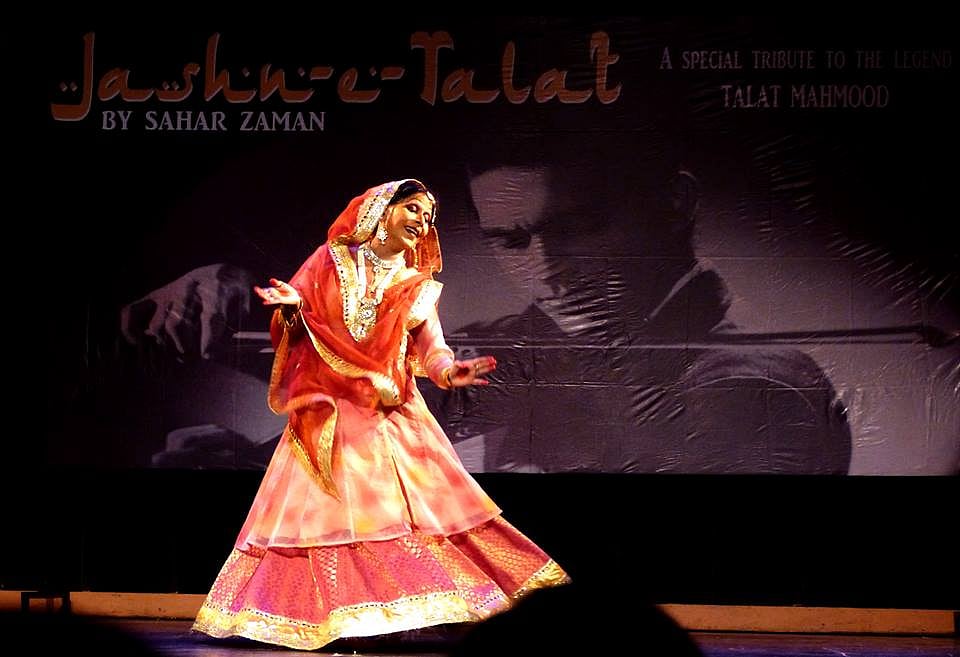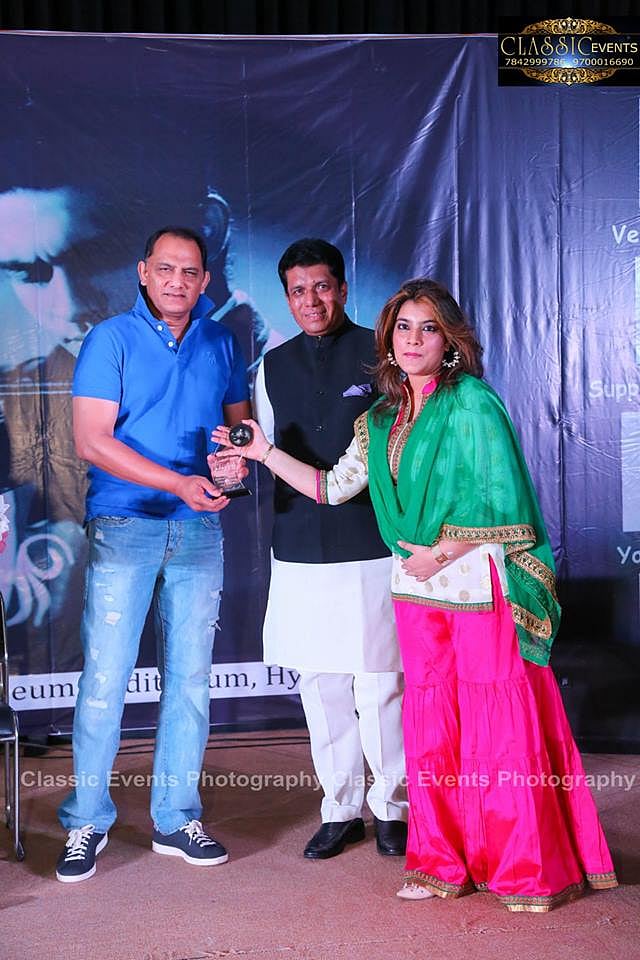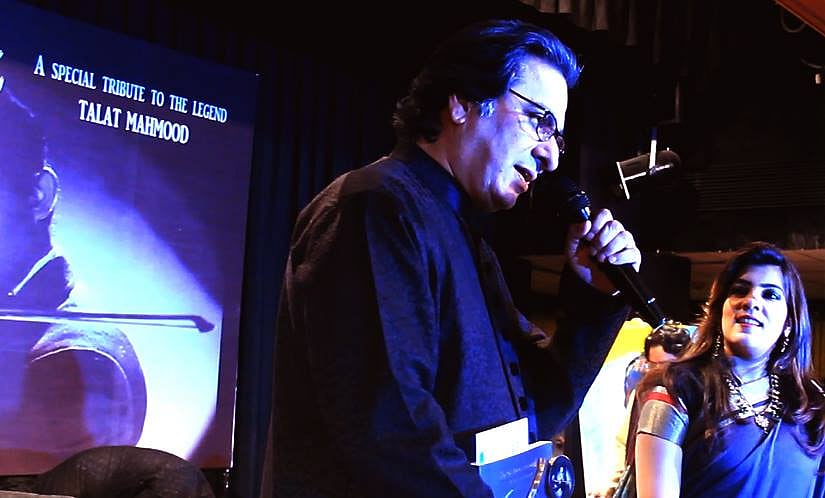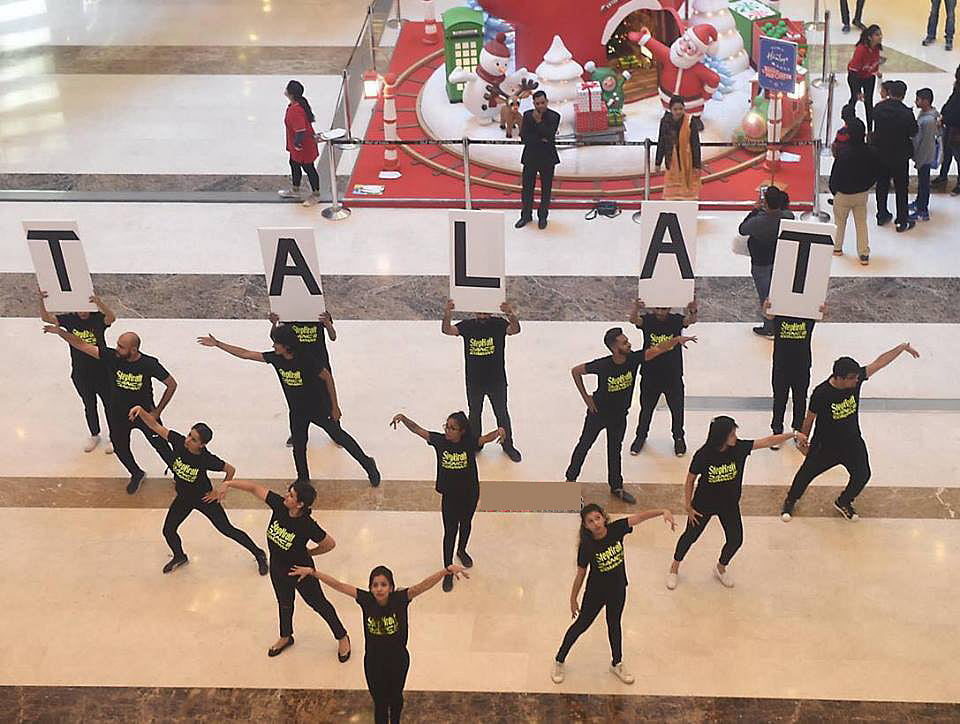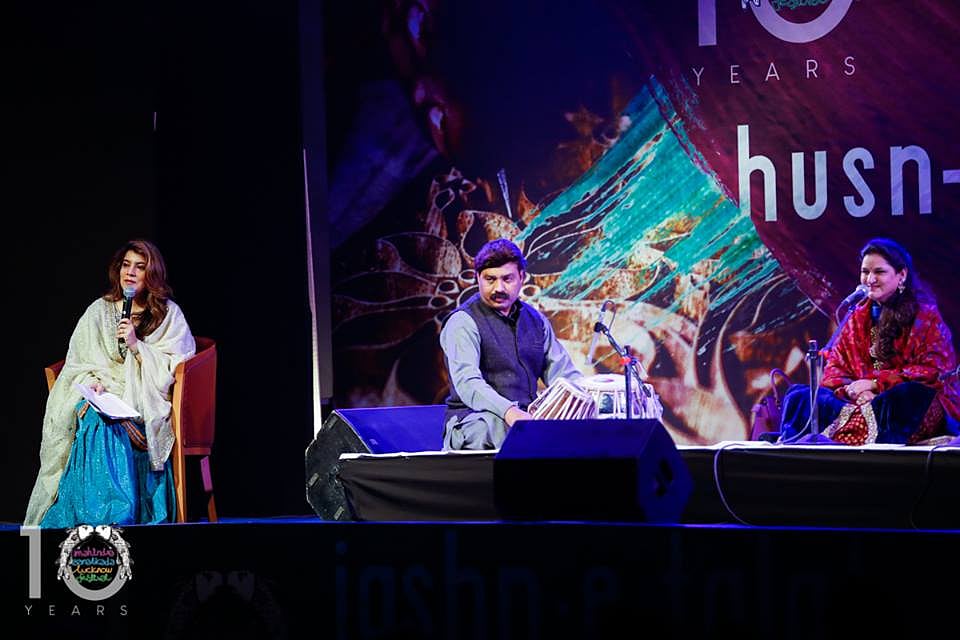Celebrating Talat Mahmood’s timelessness
Be it Dilip Kumar standing between fluttering curtains for ‘Shaam-e-gham ki qasam’ or Sunil Dutt consoling Nutan over phone with ‘Jalte hain jiske liye’, Talat Mahmood still pulls at heartstrings

Sitting outside the heritage Safed Baradari in Lucknow’s Qaisarbagh, an audience of about 400 sang along the song ‘Tasveer banaata hoon’, a song by the legendary Talat Mahmood. It was a beautiful coincidence that this song was from a film of the same name as the venue, ‘Baradari’ released in 1955. Since 24th February marks Talat Mahmood’s 95th birth anniversary, I had the pleasure of taking this musical tribute to his hometown Lucknow, earlier this month. ‘Jashn-e-Talat’ is a multi-arts platform created by me and is dedicated to his music, his films, his personality, his unparalleled contribution to Ghazal gayaki and his pioneering efforts in introducing this genre to mainstream film music.
As his grand-niece, I took upon myself the task of creating several such ‘Jashn-e-Talat’ events across the country, dedicated to him. What started as an effort last year to re-introduce his music to youngsters born decades after he stopped singing. Many of these college-goers sang his songs in our shows, as it opened up a new world of music to them. Many who didn’t sing enjoyed dancing (believe it or not, hip-hop and salsa) to his vintage music in a flash mob organised by us. Today, we are fortunate to have the support of Talat Aziz, Radhika Chopra, Rashmi Agarwal, Tauseef Akhtar and Kathak dancers Shovana Narayan, Vidha Lal, Raghuraj and Mangala Bhatt, actor Sohaila Kapur, who have all graciously lent their voice and hands and feet to my cause. Jashn-e-Talat now has the record of doing one ground event every 3 months.
The tribute in Lucknow was the 7th such ground event, featuring our present reigning Ghazal Queen Dr. Radhika Chopra. Our partner, Mahindra Sanatkada Lucknow Festival, was certain that re-igniting the memory of his music in the hearts of Lucknowites would be a great idea. And it certainly was, going by the response it got.
Born in Lucknow’s Aminabad, Talat Mahmood spent his formative years in the City of Nawabs where the Ganga-Jamuni tehzeeb reflected in all aspects of life, especially culture. His taste in music was moulded listening to the greats of his time—Ustad Fayyaz Khan, Roshana Ara Begum among others—at private music gatherings at his home. He had decided early on in his life that music would be his raison d’etre. As a teenager, he broke the news to his father that he would take up singing professionally. For the elite families of Lucknow, this was totally unacceptable. He could enjoy music but could not become a singer. At that tender age, he left home. And decided to strengthen his classical base by learning music at the Maris College, now known as Bhatkhande Music University of Lucknow.
It was in 1941, at the age of 17, that he recorded his first song for All India Radio, Lucknow. Sounding strikingly similar to K. L. Saigal, Talat Mahmood sang ‘Sab din ek samaan nahin tha’. It became a raging success. Years later, at the peak of his stardom, Talat admitted that in those days, every singer worth his salt tried to emulate Saigal and maintained that there was no greater singer than him.
After this initial success, he was invited to Calcutta to sing for films. In the 1940s, this used to be the hub of the entertainment industry much before Bombay. Here, Talat found his first years of fame and his true love. He learnt Bengali and sang as Tapan Kumar. This is where he also met his future wife, Latika Mullick. She was a well-known actress in Bengali films and was floored by Talat’s charm on the sets.
By the 1950s, Talat was being called to Bombay by the top music directors of the time. The film industry was shifting base to this newly established commercial hub. Talat’s impeccable command over Urdu was the flavour of the films. But all was not peachy as several directors didn’t approve of the vibration in his voice. It was musician Anil Biswas who recognized this unique trait and decided to use it as his strength. The vibrato of Talat’s velvet voice evoked a broken heart’s vulnerability or a young lover’s longing.
With his genteel handsomeness, Talat nana enjoyed a huge female fan following. A singing star who received letters written in blood was rare. Soon there were producers lining up to cast him as the leading man in their films. He was a reluctant actor but managed to star in a dozen odd films opposite Nutan, Shyama, Mala Sinha, Suraiya and Nadira. In fact actress Shyama, who admitted to a huge crush on him, was thrilled to play his wife, saying that he was every bit the charming gentleman in person as he was in his songs.
In a short span of his career, Talat nana managed to juggle singing, acting and Live shows. With a huge international following, he was the first Bollywood singer to have started world tours way back in the 1950s. Be it Dilip Kumar standing between fluttering curtains for ‘Shaam-e-gham ki qasam’ or Sunil Dutt consoling Nutan over the phone with ‘Jalte hain jiske liye’ or Dev Anand being mournful at the beach in ‘Jayen to jayen kahan’, Talat Mahmood became a brand that still pulls at the heartstrings, and in that he remains an ever-green star.
Our audience in Lucknow was overjoyed to hear these details which connected the legend to their city. Except for an incident that has left a bitter taste in the mouth. Unfortunate as it is in the vitiated climate of our times where only a certain ideology reigns and would like to see the end of the Ganga-Jamuni flavour of our traditions especially in our educational institutions. My request for hosting a Talat Mahmood concert at his alma mater was stonewalled by its Vice Chancellor Shruti Sadolikar. My multiple requests to accommodate an evening to commemorate Bhatkhande’s famous alumnus were rejected time and again. But I firmly believe that better sense would prevail in the days to come. Because both Talat Mahmood and Bhatkande University are national treasures that should be kept away from politics.
SAHAR ZAMAN IS AN INDEPENDENT POLITICAL NEWSCASTER, ARTS JOURNALIST AND CURATOR. MORE ON HER WORK AT www.saharzaman.com
Follow us on: Facebook, Twitter, Google News, Instagram
Join our official telegram channel (@nationalherald) and stay updated with the latest headlines

